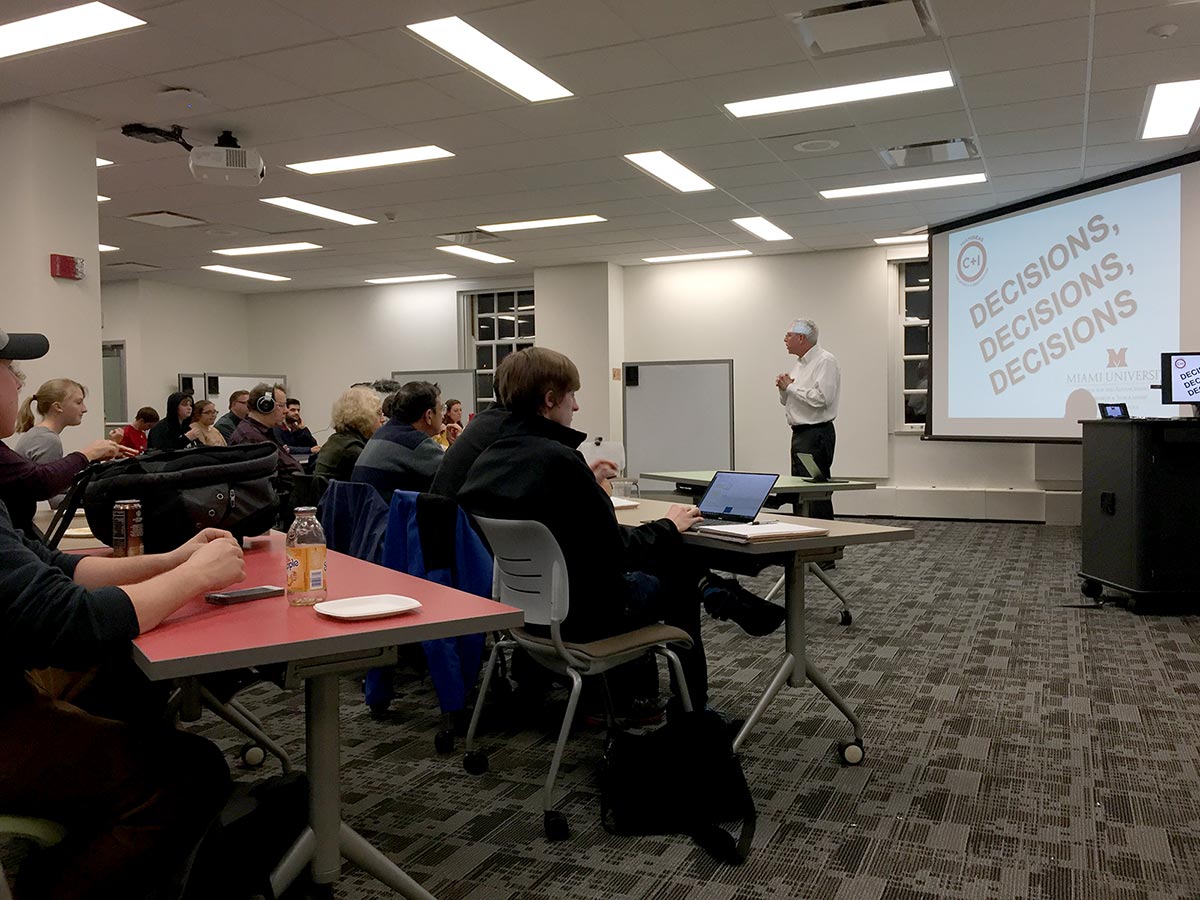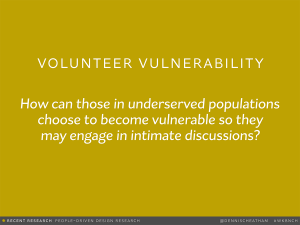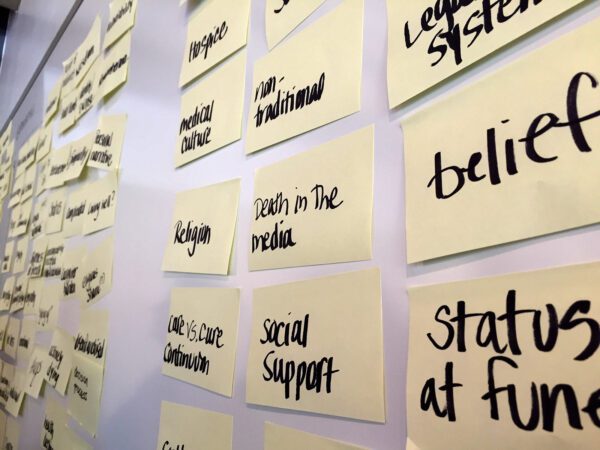Presenting Progress at Discovery Café
Presenting how design affects decision making at Miami University's Discovery Café. A progress report on decisions related to end-of-life issues.

On November 10, 2015, I had the opportunity to share our research progress at Miami University’s Discovery Café. The event was created in the spirit of Science Café events that take place around the world where researchers share their work with the public. The theme of Discovery Café was “Decisions, Decisions, Decisions” and it featured three presentations from three different researchers whose research is centered on decision-making and decision processes.

It was a nice opportunity to introduce attendees to Design Research and how design outcomes act as interventions that strive to nudge people into decision-making. Over the course of the 12-minute talk, I shared how design consists of a “less desirable” condition, envisioning a “more desirable” condition, and a design intervention created to make those “more desirable” conditions more likely (based on Simon’s work in The Sciences of the Artificial). This dovetailed well into talking about my recent research across a few different projects, including Decisions Related to End-of-Life Issues.
Based on some key informant interviews, the project is focusing on the concept of vulnerability. In order to discuss end-of-life decisions, people must make themselves vulnerable: to another, to the thinking that they will someday die, to the fact that they will someday lose their control. The decision to be vulnerable is not one that can just be fabricated on a whim, so the conditions of intimacy that surround such an interaction are of special interest now for the project. In other words… how can volunteer vulnerability be encouraged in ways this people group will adopt? No small task… but I believe a systemic approach like the one we are taking is the right way to go. Perceived and real factors play into the facilitation of intimacy that allows volunteer vulnerability. As we move toward conducting field research to learn about the underserved populations we are studying, I look forward to discovering more about how they define concepts of intimacy and vulnerability.
It was a great opportunity to share our progress and I’d guess that about 60 people attended the event. Judging by the number of people who stopped me after it was over, there is a lot of interest in our project across a range of ages both inside and outside the university. I hope to have more chances to share the work so it engages a broad audience on topics of decision-making and end-of-life.
Learn more about Discovery Café at the event website: http://miamioh.edu/research/events/discovery-cafe/decisions/index.html.
Topics
References
Simon, Herbert A. The Sciences of the Artificial. Cambridge, MA: MIT Press, 1996.


